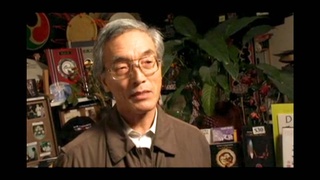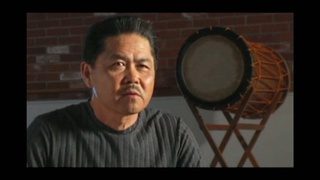Interviews
American influences on Japanese taiko
We’ve known KODO from the very beginning, since they were Ondekoza. When Ondekoza first came here, they didn’t know anybody and they somehow found us and so they practiced here. So it was really weird. They had a hotel – a cheap hotel – in Hollywood and of course they ran here, rehearsed, ran back, and then ran to the theatre for a performance. We’re going, “What’s the matter with you people?”
But anyway, since that time, we’ve been very, very close. And when they became KODO. So usually, when KODO comes to town, we have a potluck with them. They’re the exact opposite of us. I remember one time they said, “Our taiko is serious taiko and your taiko is fun taiko”. We took that as a compliment and I think as a result of American contact, maybe with us, I don’t know, they finally agreed to have a woman perform in their troupe, which is unheard of in Japan. Women do not play taiko. Here, it’s overwhelmingly women. The majority of any group is women because that onus is not there and I think that had an influence, an impact on them.
And the fact that they can finally smile in a piece while they’re playing, which you don’t do in Japanese performing arts. So that’s been an American influence, I think. And I think they’re much better off for it.
Date: December 3, 2004
Location: California, US
Interviewer: Art Hansen, Sojin Kim
Contributed by: Watase Media Arts Center, Japanese American National Museum






